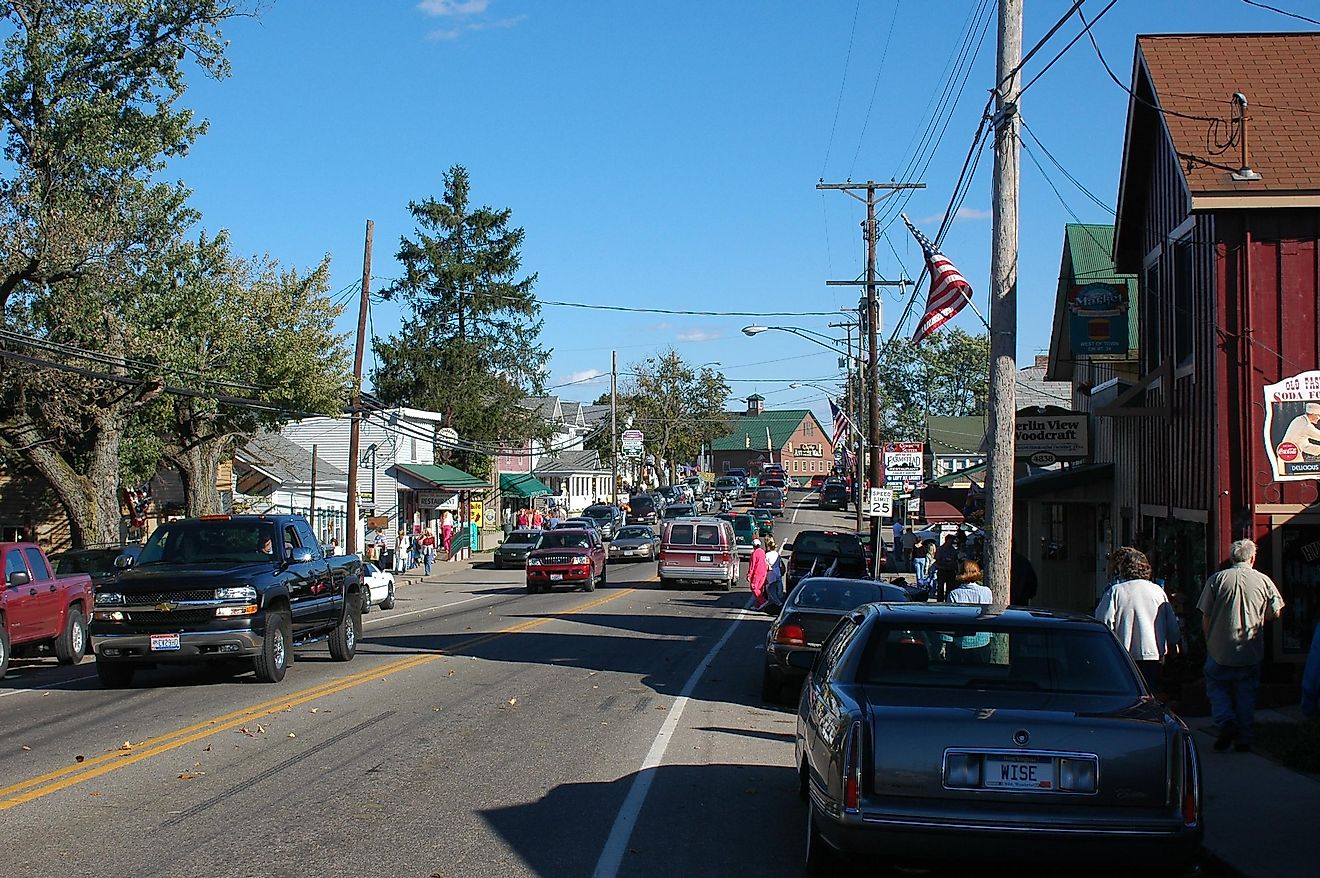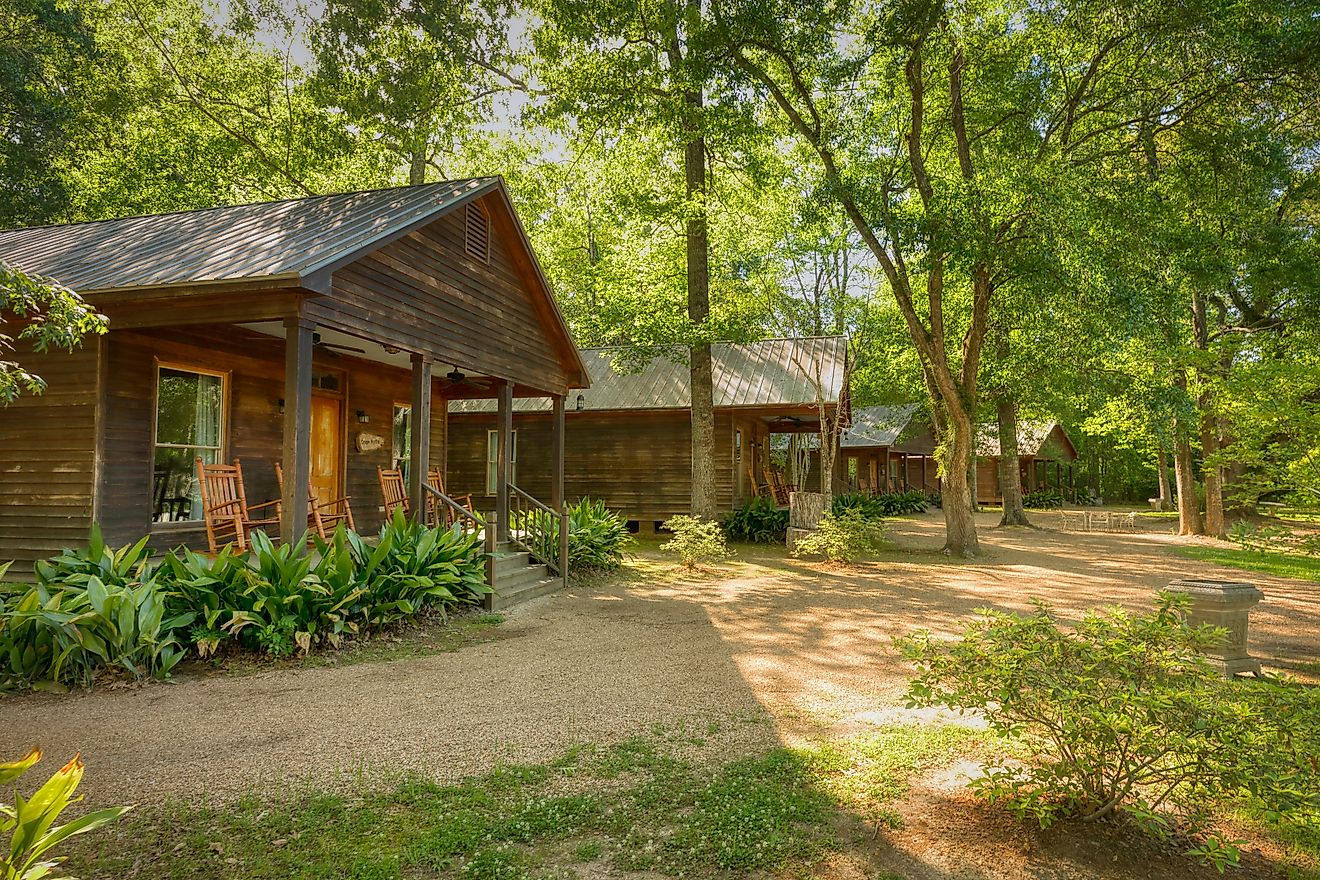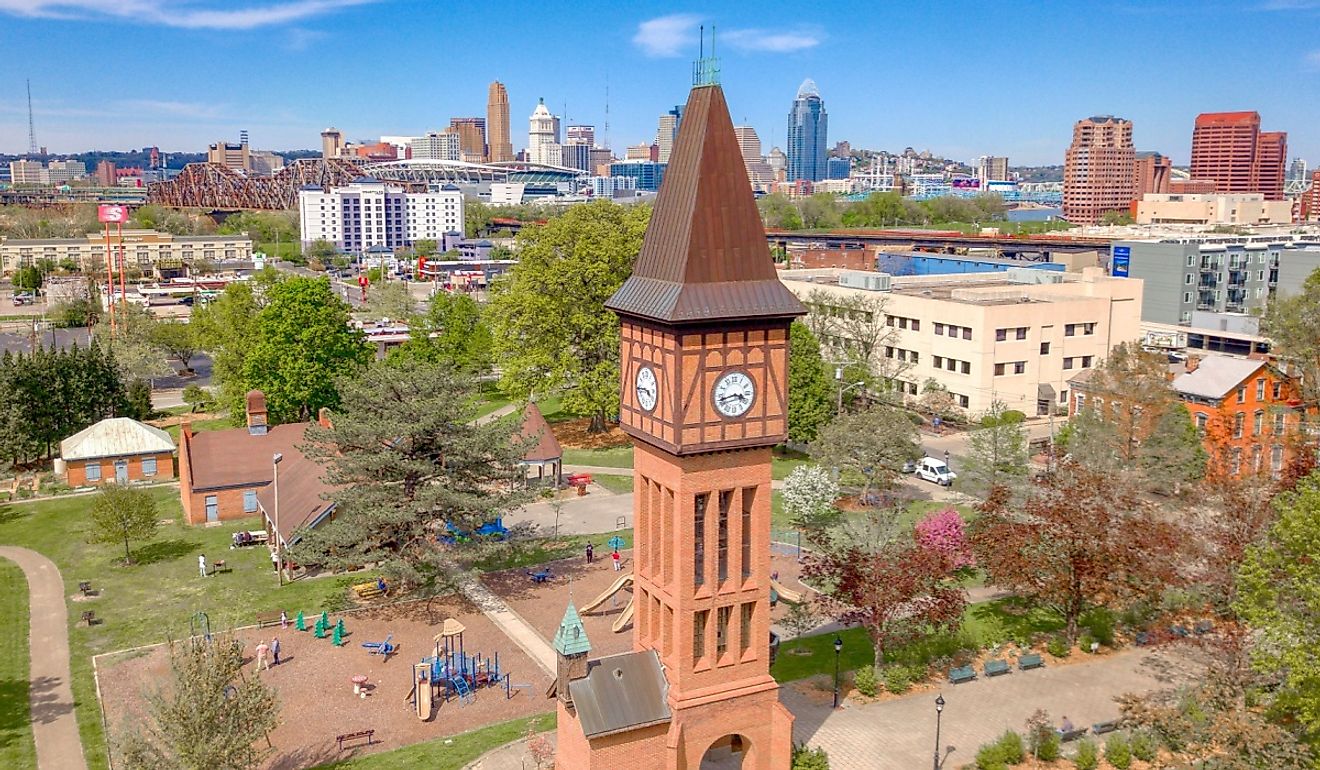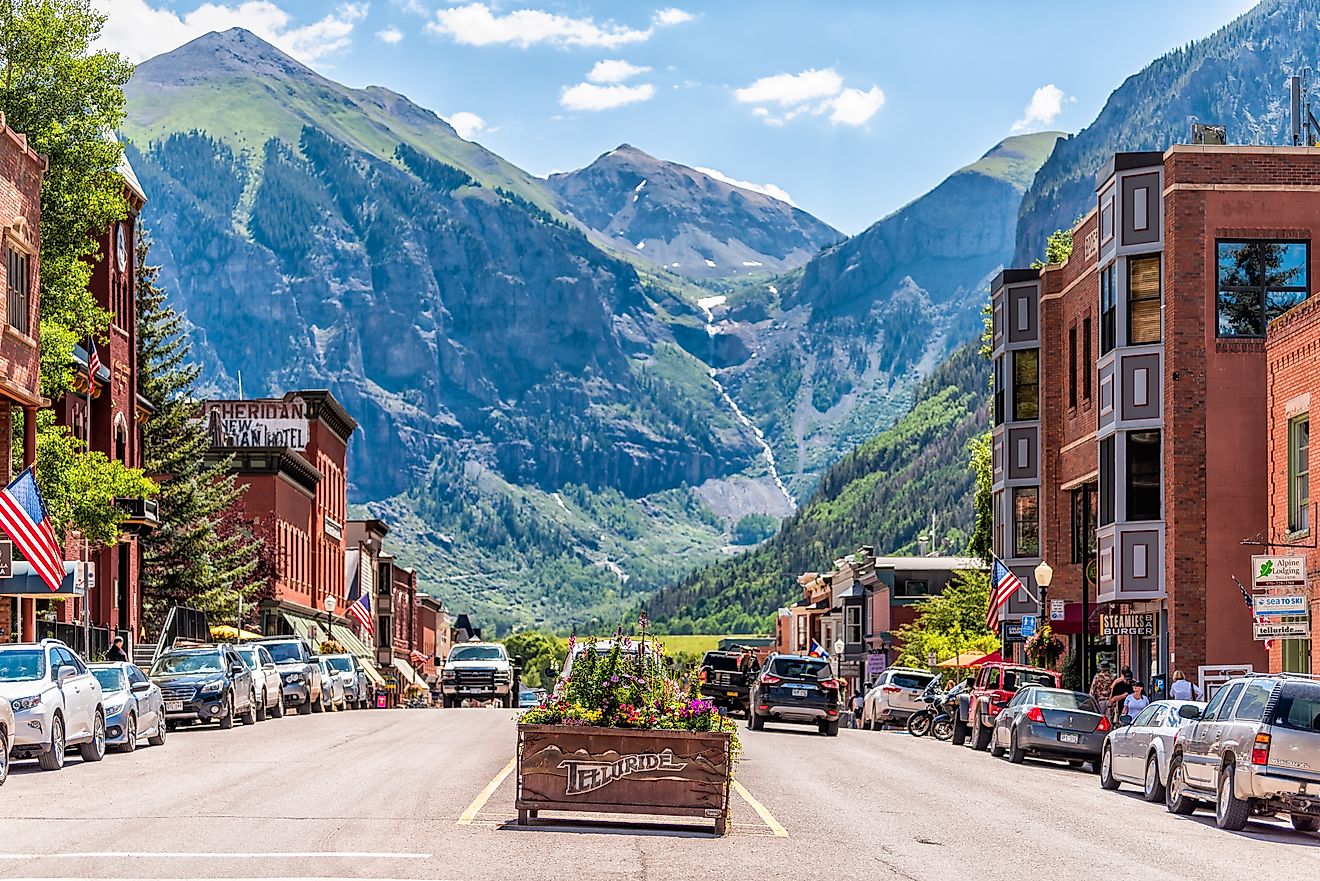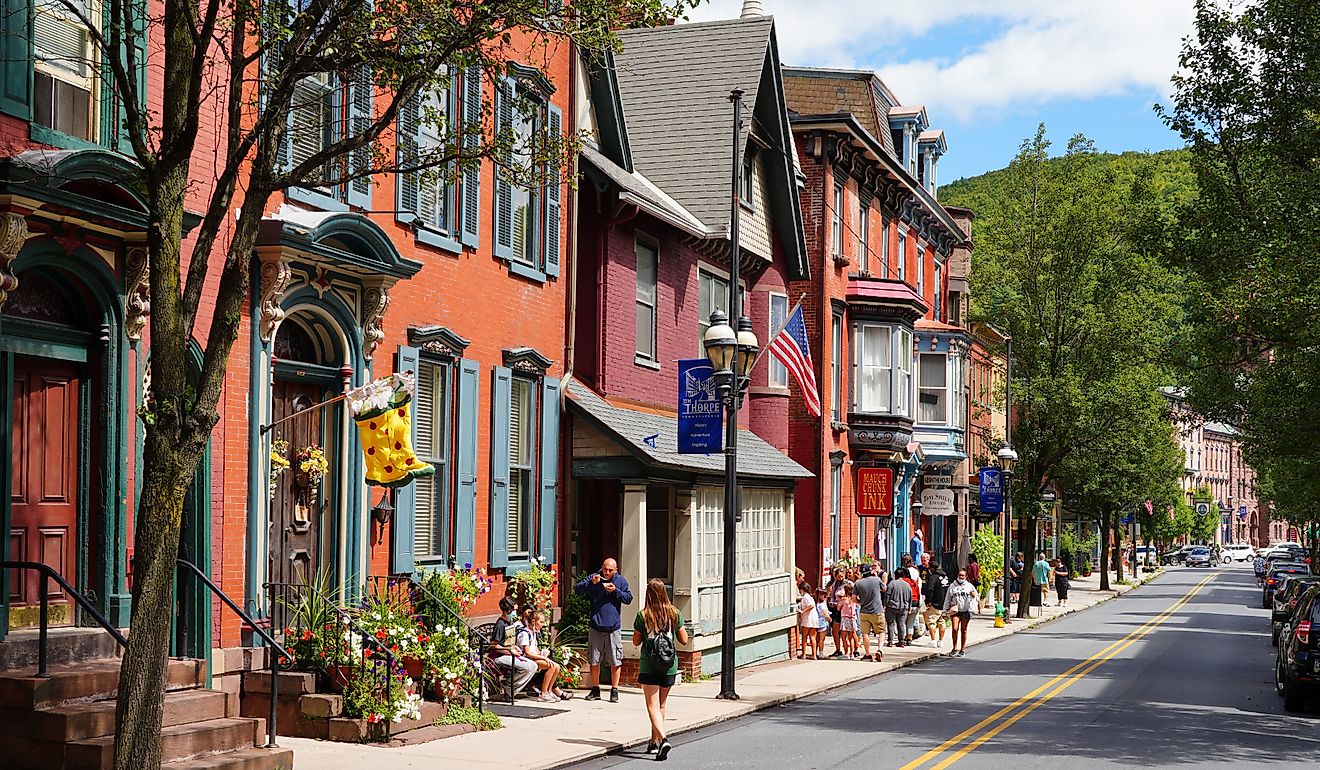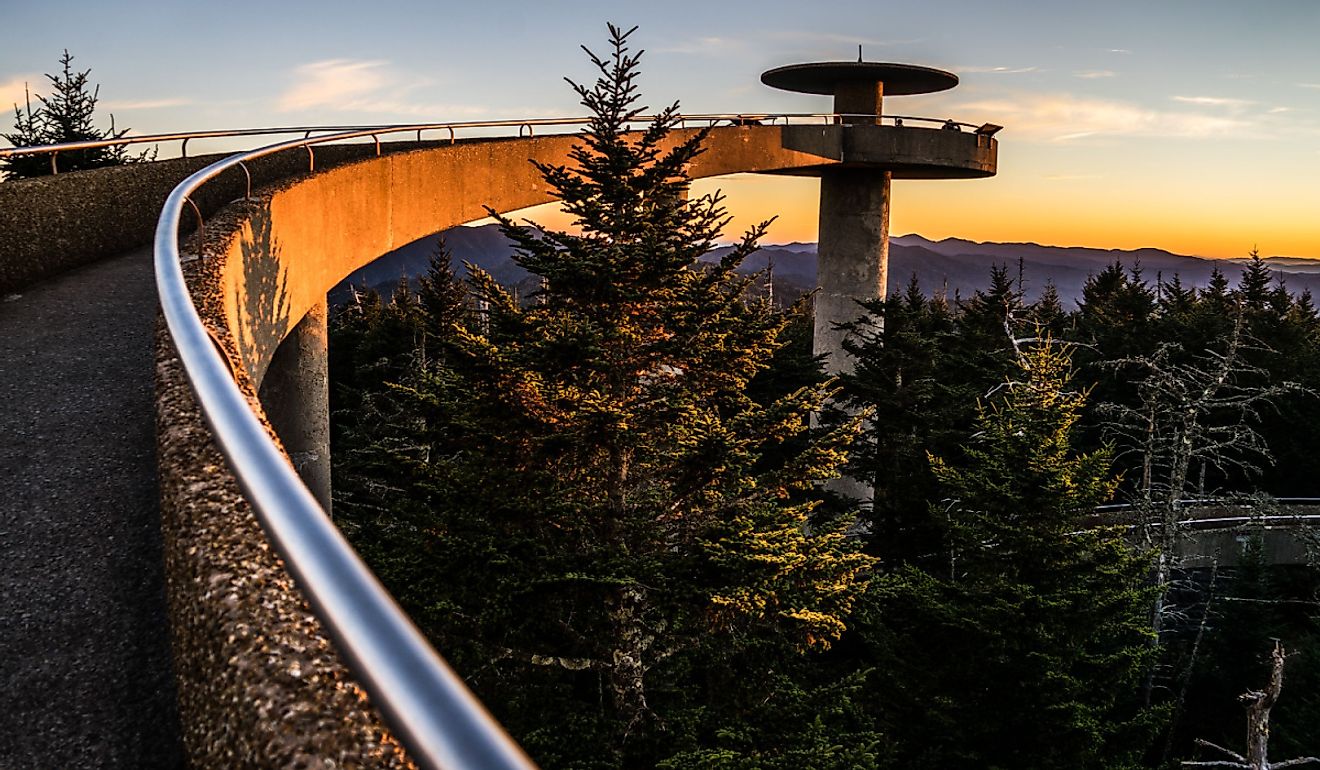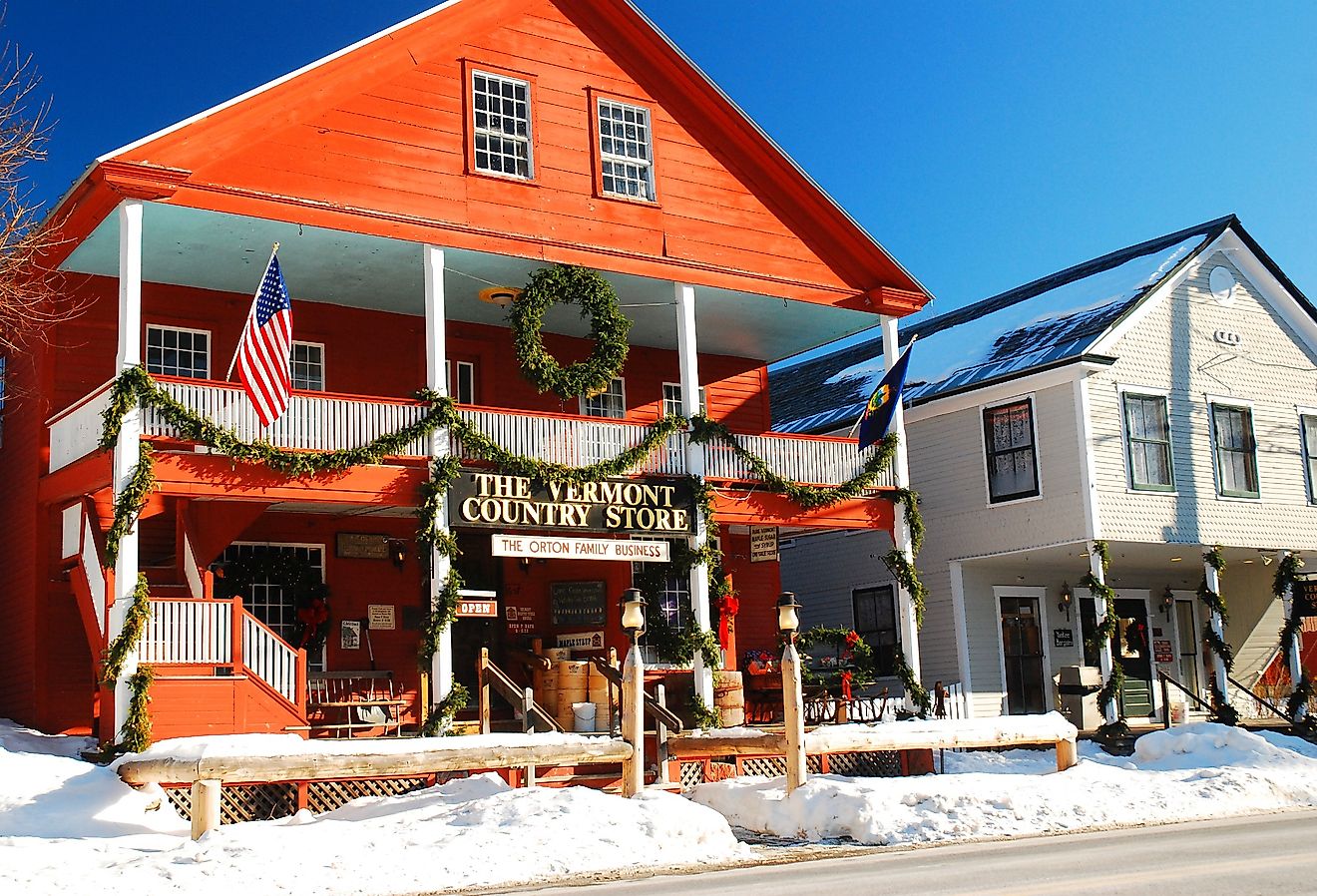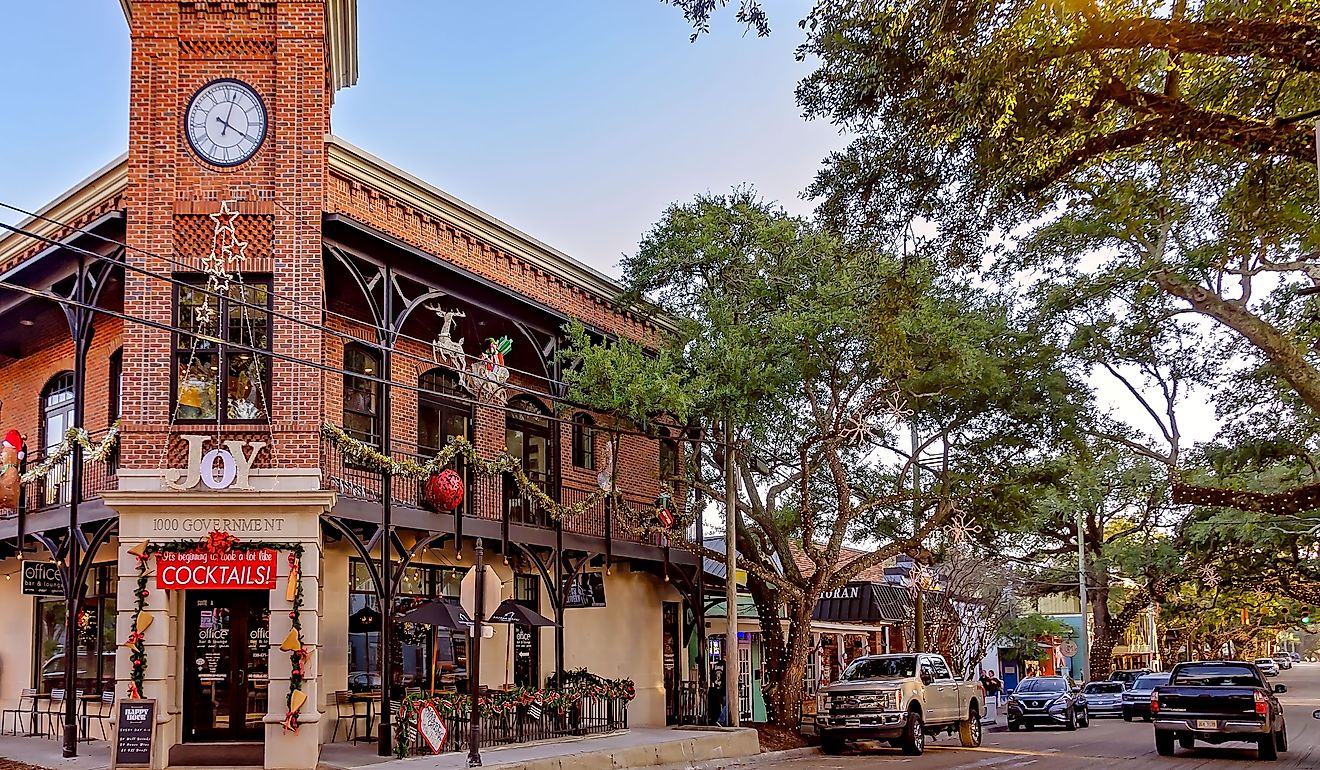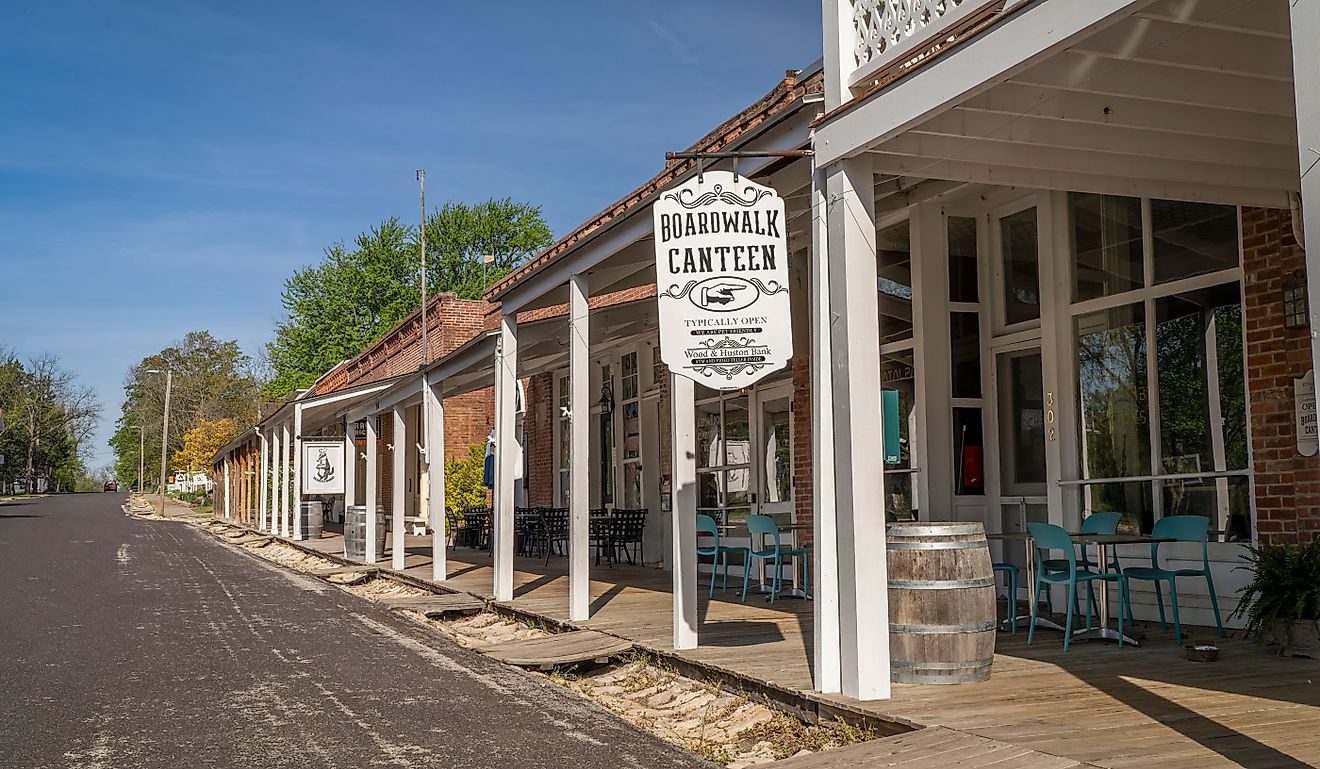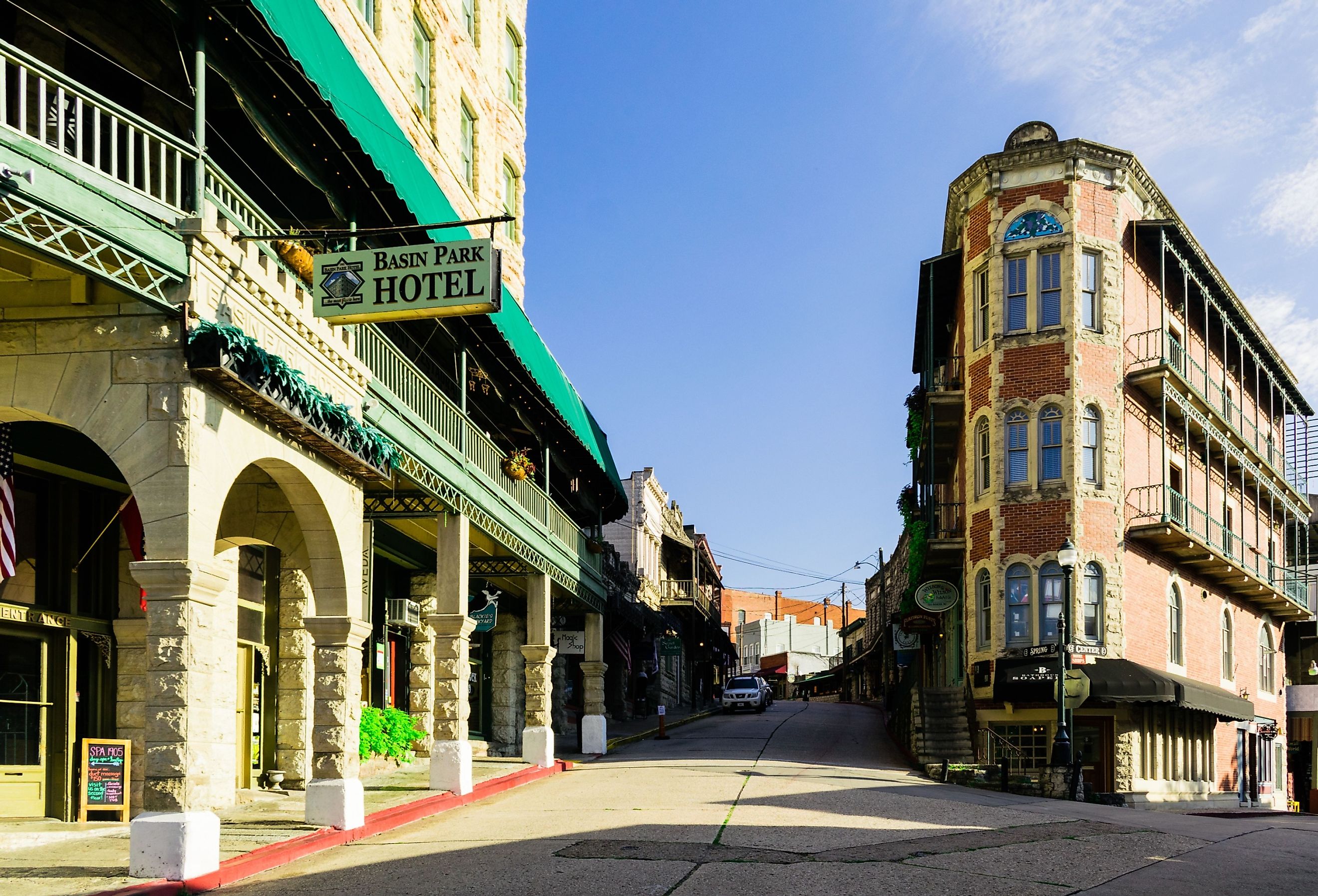
8 Most Historic Small Towns to Visit in The Ozarks
The Ozark Mountains are a geological wonder in the central United States. The roughly 45,000-square-mile region spans Missouri, Arkansas, Oklahoma, and Kansas. The range consists of sinkholes, limestone cliffs, and natural bridges. The mountain towns that make up the region are historic, charming, and pleasant to visit. Visitors enjoy the quaint surroundings, spectacular scenery, and natural springs that are the fabric of the Ozarks.
The historic towns have beautiful architecture, charming districts, and communities dating back to the Civil War or older. Many historic districts are on the National Register of Historic Places, with markers and plaques detailing their significance. The Ozark region is beautiful year-round, and the historical sites add to the beauty and tell the story of the Ozark Mountains. These are the eight most historic small towns to visit in the Ozarks.
Eureka Springs, Arkansas

Eureka Springs is a gorgeous town in northwest Arkansas, known for its preserved Victorian homes in the historic district. The most photographed building downtown is the Flatiron Flats building. The unique building was the first brick structure in town and was built where Center and Spring streets intersect and is available to book! Another historic downtown structure is the Basin Park Hotel.
The Basin Park was built in 1905 and includes The Balcony Restaurant and Jack Rabbits Whisky Bar today. More notable points of interest are the Municipal Auditorium, built in 1936, and the Eureka Springs Historical Museum. The museum traces the town's founding, Victorian architecture, and the hard life of the earliest settlers. Walking through Eureka Spring's historic district is like stepping back in time, and it is one of the best towns to visit in the Ozarks.
Siloam Springs, Arkansas

Siloam Springs, Arkansas' downtown district, is on the National Register of Historic Places. It is named after the healing waters of the Pool of Siloam in the New Testament. Its history dates back to 1890 and includes Sager Creek, three parks, and museums. Maxwell Street is home to the Siloam Springs Museum, which explores the town's Osage Natives and other histories with exhibits and tours. There is a public mural on Main Street that celebrates the rich history of Siloam Springs.
The charming downtown district and surrounding neighborhoods have historically significant Art Deco, Beaux Arts, and Classic Revival-style architecture. Carl's Addition is a second nationally registered historic district. The residential area was historically active from the mid-19th century until 1945. It is a treasure trove of Queen Anne, Colonial Revival, and Bungalow architecture. The downtown area also has a trendy culinary scene, perfect after a self-guided tour of Siloam Springs.
Mountain View, Arkansas
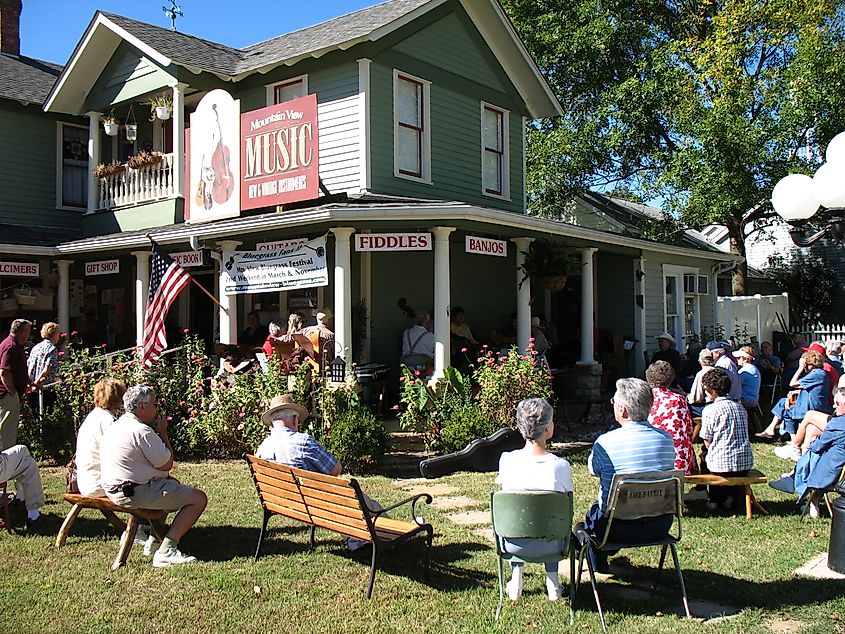
Downtown Mountain View, Arkansas, is known for its historic town square and buildings. It is also famous for preserving folkways and traditional music and is home to the Arkansas Folk Festival, founded in the 1960s. The downtown district was established in the 1870s and includes the Ozark Folk Center and the Stone County Museum. The Folk Center is a state park with exhibits, pioneer crafts, and herb gardening. The museum is housed in a historic school building built in 1928 and is open from April through October.
A distinctive piece of history is the 1910 swinging bridge for cars. The one-lane swinging bridge is suspended 200 feet over South Sylamore Creek and is one of only two remaining in Arkansas. The Old Mill is also a unique point of interest. Built in 1914, it includes an old general store, arrowheads, and original wheat and corn grinding tools. The abandoned mill is a historic window into a bygone era and shows the significance of this remarkable town.
Eminence, Missouri

Eminence is on the National Register of Historic Districts in the Big Springs area of Missouri. The 5,000-mile spring region contains eleven out of 69 US first-magnitude natural springs. The Alley Spring Grist Mill Historic Site is a prominent historic site. The earliest residents used it as a school, wheat, four-mill, and farm. Civil War guerillas burned the town to the ground in the mid-1800s, but its mills continued to thrive economically, and the town grew from this resurgence.
Story's Creek School is a one-room schoolhouse within walking distance of Alley Spring. In 1903, it had 42 students and doubled as a church. Eminence is a special place because of its history, and the sites have been preserved. The sites are near the two clear rivers, which lead to stunning, deep natural springs, which add a mystique to this sparsely populated mountain town. Downtown has its share of historical sites as well.
Eureka, Missouri
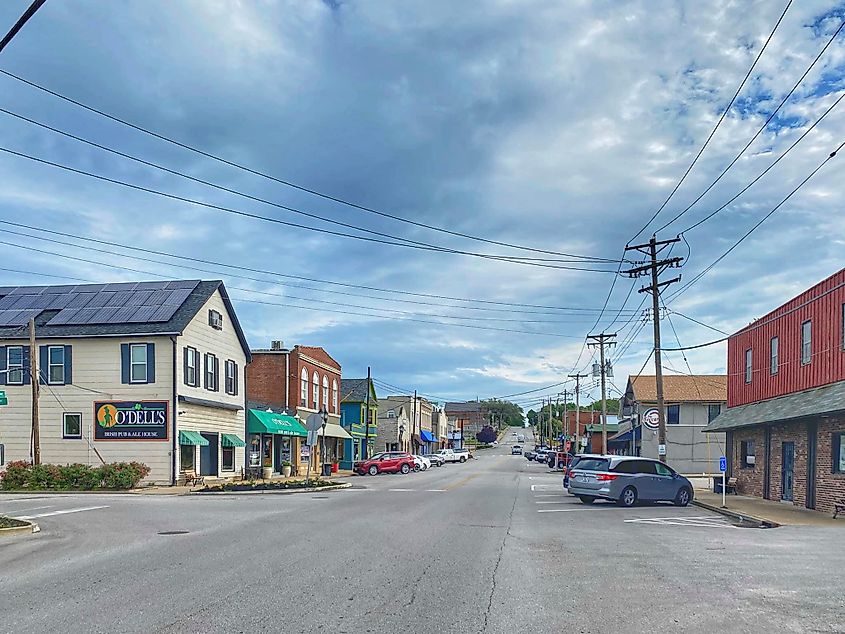
Eureka, Missouri, derived its name from the Greek meaning, "I've found it!" during the railroad boom in the latter half of the 19th century. When the railroad builders came around a curve near present-day Eureka, they spotted level land and would yell, "Eureka!" The historic commercial district is a quaint combination of vintage buildings, classic architecture, and brick facades that are pedestrian-friendly and fun to explore.
The six-block area centers around Commercial Street, or C-Street, in local parlance. The de facto Main Stree is laid out similarly to the first trains in town in 1870, a subtle nod to Eureka's railway history. The famous Route 66 runs through Eureka, and a state park celebrates this historic road. The Visitor's Center at Route 66 State Park was the 1935 Bridgehead Inn, a popular stopping point for travelers. Eureka has a charming railway history, and remnants of this bygone era dot the local landscape and provide the story of this Ozark town.
Clarksville, Missouri
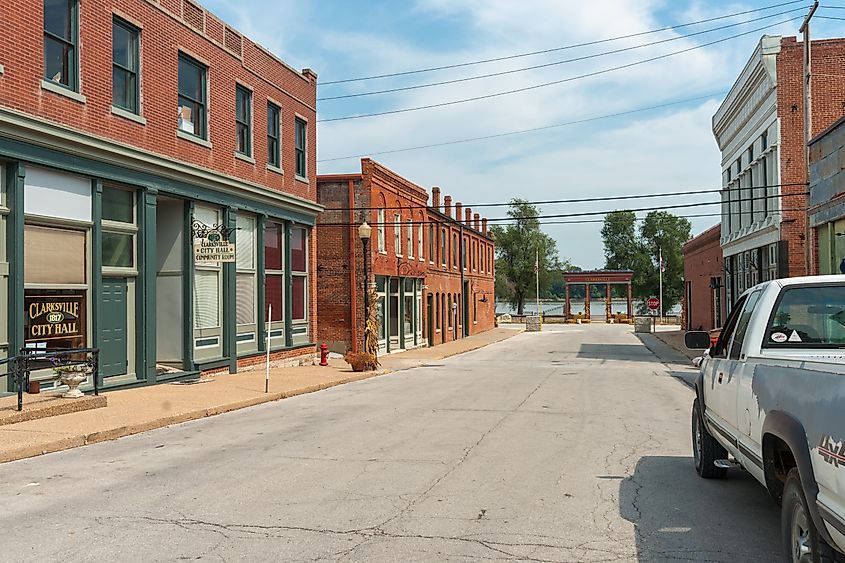
The historic district in Clarksville, Missouri, is nationally registered and contains 65 buildings of architectural significance. The buildings were erected between 1840 and 1930, including Queen Anne, Greek Revival, and Italianate architecture. Downtown is a throwback to simpler times and is a welcoming place for pedestrians to explore the historic brick storefronts and charming architectural columns. Notable examples are the Clifford-Wyrick House, ca. 1876, the Sentinel Building, ca. 1867-1871, and City Hall, ca. 1910.
The Clifford-Wyrick House is in the Italianate style and was built by a prominent banker, merchant, and riverboat captain. It contains many original features. The Lock and Dam No. 24 Historic District on First Street is also nationally recognized for its historical significance. The 600-foot lock and dam took four years to build, from 1936 to 1940, and is a popular feeding spot for Bald Eagles because the water temporarily stuns fish, making them an easy catch. Clarksville is an interesting amalgamation of industrial and residential history and is one of the historic towns in the Ozark Mountains.
Van Buren, Missouri
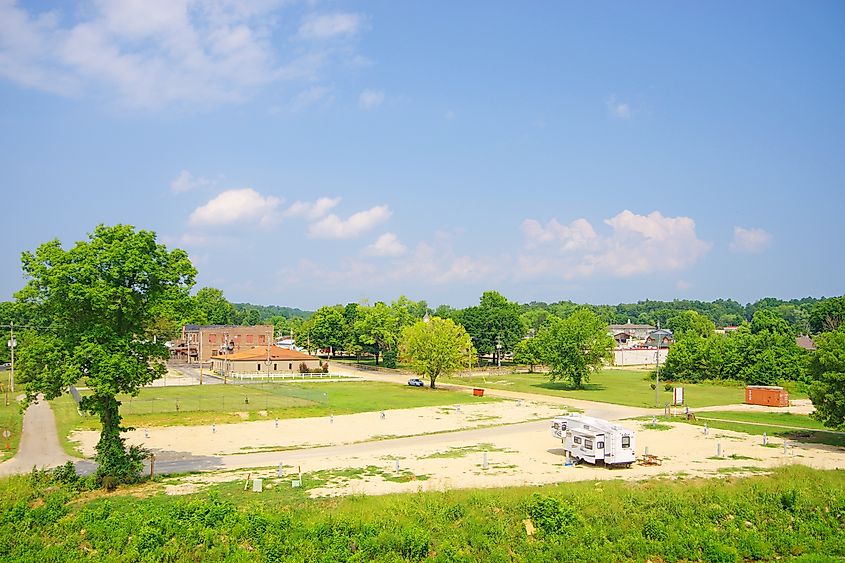
Big Spring Historic District in Van Buren, Missouri, is nationally recognized and part of the National Scenic Riverways. It contains 26 buildings and pays homage to the Civilian Conservation Corps with museums and other historical markers. The Big Springs State Park includes a lodge from the Great Depression era and was a state park from 1924 to 1969 when Missouri donated the land to the Ozark National Scenic Riverways.
The Carter County Courthouse occupies one block of south Van Buren and was constructed in 1871. It was 40x40 feet long and made of pine. When the town's needs outgrew the courthouse, they added the east end, including the rock walls, in 1936. It stood until 2017 when floods damaged the interior, and it was abandoned, though it is still on the National Register of Historic Places.
Claremore, Oklahoma
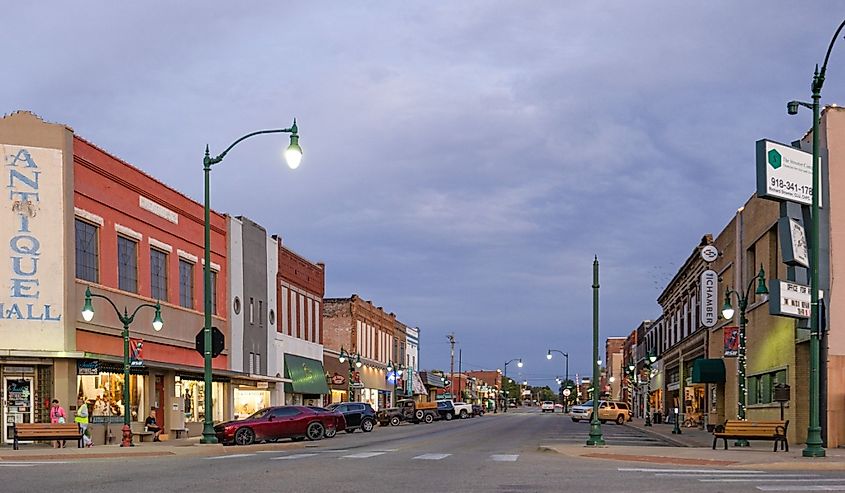
Claremore, Oklahoma, is famous for being the home of Will Rogers, the singing cowboy and actor in the first half of the 20th century. The Will Rogers Memorial Museum is a tribute to the native son, and the Cherokee Nation owns the Will Rogers Birthplace Ranch, which is available to tour. Ed Galloway's Totem Pole Park is another significant memorial and a popular stop along Route 66. The park is a monument to Native Americans and contains the world's tallest concrete totem pole.
The J.M. Davis Arms and Historical Museum boasts the world's largest privately-owned firearm collection. Along with the 12,000 firearms, Old West saddles and historical exhibits about the town and the county. The Historic Downtown District centers around Main Street and is a charming place to walk around. The Main Street initiative has preserved vintage buildings, including the Will Rogers Hotel, which was renamed after the most prominent citizen. It was also the most popular bathhouse during the late 19th century.
The Ozark Mountain region is not only a geological wonder with some of the most significant springs in the United States but also packed with historic towns. Some towns like Van Buren and Claremore, Missouri, are along the famed Route 66. Places like Mountain View, Arkansas, have diverse architectural styles that showcase the town's evolution through different periods.
The downtown areas of these historic towns remind the visitor of a bygone era. The mostly brick facades and local shops are a slice of charming Americana. The towns, whether the antique residential or commercial districts, are small enough to explore on foot. Eureka Springs is perhaps the most visited Ozark town for its downtown area and iconic Flatiron Flats building. Many of these towns became financially prominent thanks to the railway system during the late 19th century; exploring the remnants tells a fascinating story of these historic towns.
